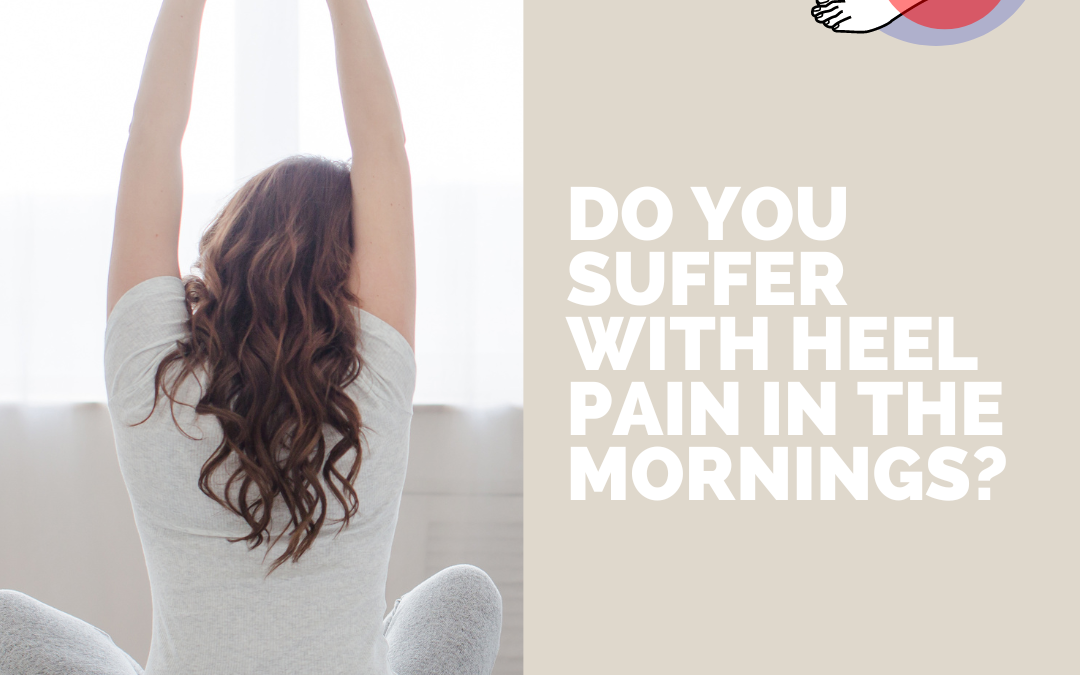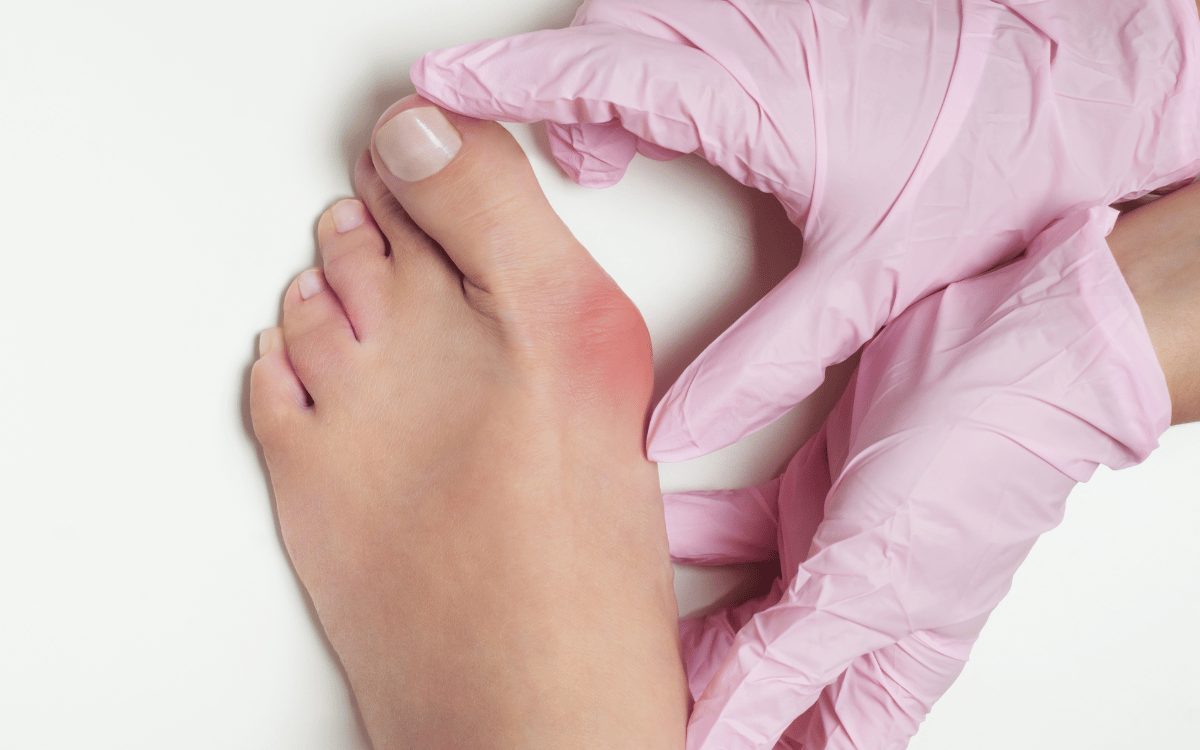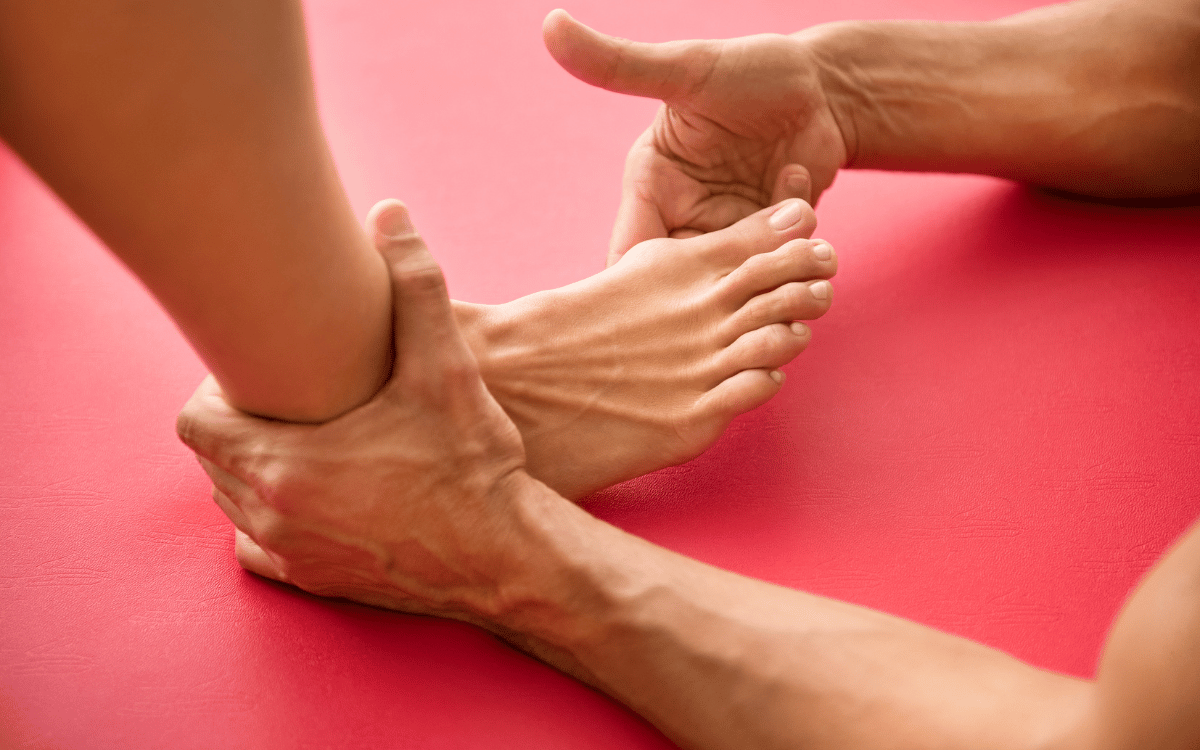Why do I get heel pain in the morning? If you get heel pain in the morning, make sure you watch this video. I’m going to take you through why you get heel pain, what you can do about it, how you can help it long-term, how you can avoid the need for cortisone, orthotics, and be stuck in nanna-shoes. Make sure you check out this video and I’ll give you heaps of helpful tips, both practical and other things you can do if things just aren’t resolving. If you want to make an appointment for your heel pain, book our 60% off heel pain assessment for just $40 via this link https://sydneyfootsolutions.com.au/heel-pain-assessment/
Why do I get heel pain in the morning? Well, the reality is that if you get heel pain in the morning, you’ve probably got plantar fasciitis. Your plantar fascia is a piece of tissue that runs from here down to here, and you get micro-tearing in this area, and it bleeds and it gets quite sore, and it flares up those tissues.
Plantar fasciitis can be very crippling, very debilitating, particularly in the mornings. So the reason it manifests in the mornings is for two reasons, primarily. You’ve got the existing plantar fasciitis, and that has happened because of the way you stand and the way you walk. And you get micro-tearing through those tissues, and it bleeds and it gets sore, and it happens because of thousands and thousands of steps. And so what happens is that you get into bed at night after you’ve had a full day on your feet, or you’ve been busy, busy, busy, even a full day sitting can sometimes tighten it as well, and your body does two things. The first thing it does is it tries to repair the area and so your body sends lots and lots of blood down to the area, and that area becomes quite inflamed and becomes sore, and it stirs. It stirs up those tissues and sits on the nerves in that area. And the problem with that is that you get a huge influx of blood flow right around where there’s those nerves and those tissues, and it stirs it all up. And often this sort of healing cycle, it really peaks at about around three o’clock in the morning, we know, and that’s when your body really hits its peak of its healing cycle. And the difficulty is that that blood is sitting there, and it’s very, very highly inflamed. And the problem is you get up in the morning and you hobble about.
If you’re wondering, oh, well, how come it gets better after say 10 minutes of walking around the house or half an hour of walking around the house, the reality is that your body, your venous system gets the blood and pushes it back up your leg and gets rid of that inflammatory response through that area. As a result of that, that’s why it starts to clear all that tissue. Now, when we go to bed at night, we tend to sleep in a tightened position, and your plantar fascia and what causes heel pain is very heavily affected by how tight and stiff you are, particularly up the backs of your legs.
Watch the video where I show you some some tips on how you can help to alleviate that in the mornings. Definitely if you have pain for several weeks, if not months, then I would strongly encourage you to get professional advice. But for today, we’re going to give you some top tips to try and help alleviate that.
The first thing I would do is stretch your calves more. So if you stretch your calves more, it’s going to help to alleviate some of that tightness that you get from in bed at night. I would be stretching, stretching, stretching as much as you possibly can. It’s very, very simple and straightforward. If you do that for three weeks and you still get pain, I would advise you to seek professional help.
Now, the second one that I would try is the dowel exercise. So just be aware that this will hurt. And what we recommend is just be careful with this one. But there’s some really great research on how this helps proliferate. It’s cell healing within your plantar fascia, so very, very good one to do. Just be aware. It’s probably going to hurt the first time you do it or the second time you do it or for quite some time. And the reality of this one is just to give some context is that plantar fascia loves tough love. You don’t, but it does. And so what we do find is that this will help to alleviate this a great deal with plantar fasciitis. It helps to loosen up the backs of your legs just by releasing the bottom of your plantar fascia.
And for our final exercise, this is also going to help to loosen and strengthen the tissues under your arch and your ankle, which has a positive effect on plantar fasciitis and heel pain. The way we do this is you get yourself a thick towel. So it flexes your big toe. You’ll see what I mean in a minute. We can stand here. So we’re hanging off a step with the towel on the tip of the step. Flex your toe. And you go down one, two, three, and then up one, two, three. And you’re doing that 10 times twice a day. And what you might find with this one, when you do it, when you start this, is that you get a little bit of soreness through your ankle and your arch, and it stirs up those tissues. But what we do find is it’s very, very effective for strengthening and helping to address the underlying cause of the plantar fasciitis.
But once again, exercises are great, but if you keep getting pain for, for three to four weeks after doing these exercises, we strongly recommend you seek professional help. So we see stacks and stacks of plantar fasciitis and heel pain. The way we do it is a gentle hands-on technique called foot mobilisation, we also use advanced laser therapy to break the pain cycle. The benefit of laser therapy, there’s no negative downsides. It doesn’t hurt, it’s really quick and the good news is that you feel better even after one session. I’m not saying one session will fix it, but you do feel better after one session. So,
The upside of our treatments are:
- You don’t have to wear orthotics
- You don’t have to have cortisone
- You don’t have to take anti-inflammatory drugs, and we can address the underlying cause
We can help because we can help the way you stand in the way you walk. If this sounds like something you’re interested in, maybe check out our 60% off initial heel pain assessment offer. Just click on the link below. https://northernbeachesheelpainclinic.com.au/request-heel-pain-assessment/




